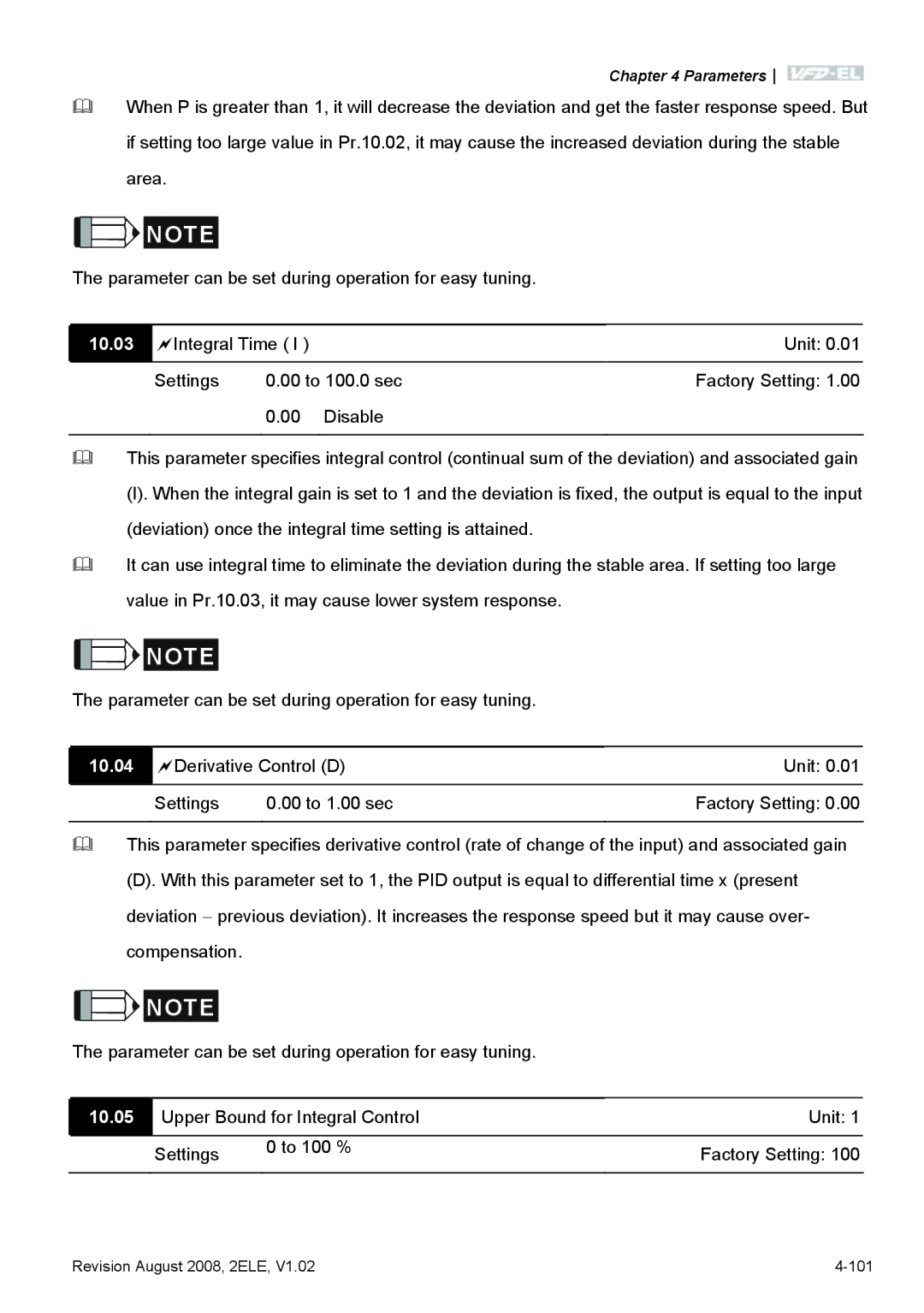
Chapter 4 Parameters
When P is greater than 1, it will decrease the deviation and get the faster response speed. But if setting too large value in Pr.10.02, it may cause the increased deviation during the stable area.
![]()
![]()
![]()
![]() NOTE
NOTE
The parameter can be set during operation for easy tuning.
10.03 | Integral Time ( I ) | Unit: 0.01 | |
|
|
|
|
| Settings | 0.00 to 100.0 sec | Factory Setting: 1.00 |
|
| 0.00 Disable |
|
|
|
|
|
This parameter specifies integral control (continual sum of the deviation) and associated gain
(I). When the integral gain is set to 1 and the deviation is fixed, the output is equal to the input (deviation) once the integral time setting is attained.
It can use integral time to eliminate the deviation during the stable area. If setting too large value in Pr.10.03, it may cause lower system response.
![]()
![]()
![]()
![]() NOTE
NOTE
The parameter can be set during operation for easy tuning.
10.04 | Derivative Control (D) | Unit: 0.01 | |
|
|
|
|
| Settings | 0.00 to 1.00 sec | Factory Setting: 0.00 |
|
|
|
|
This parameter specifies derivative control (rate of change of the input) and associated gain
(D). With this parameter set to 1, the PID output is equal to differential time x (present deviation − previous deviation). It increases the response speed but it may cause over- compensation.
![]()
![]()
![]()
![]() NOTE
NOTE
The parameter can be set during operation for easy tuning. |
| ||
|
|
| |
10.05 | Upper Bound for Integral Control | Unit: 1 | |
|
|
|
|
| Settings | 0 to 100 % | Factory Setting: 100 |
|
| ||
|
|
|
|
Revision August 2008, 2ELE, V1.02 |
